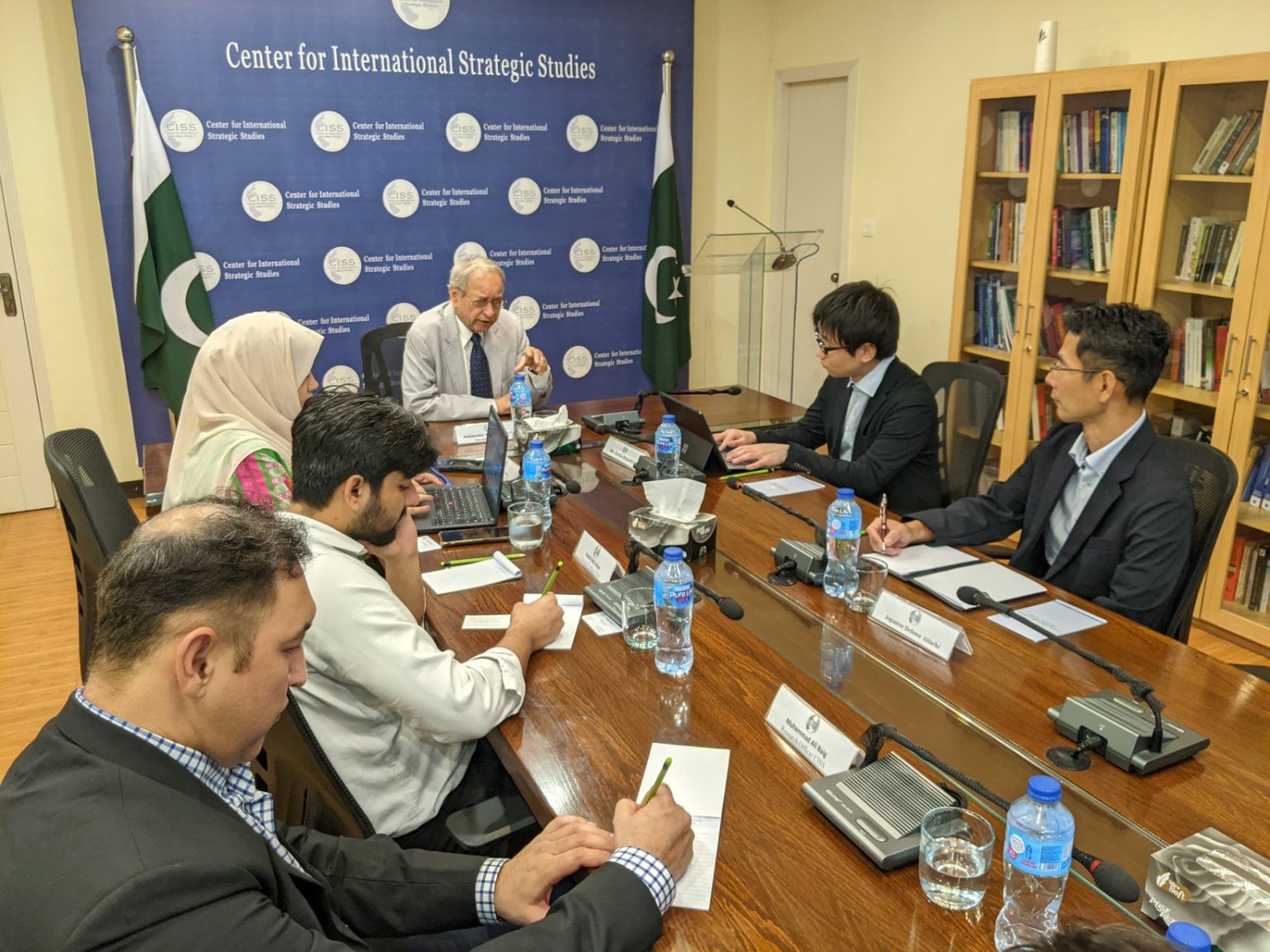On July 23, 2024, a meeting was held with the Japanese delegation at the Center of International Strategic Studies (CISS), Islamabad. The delegation consisted of Senior Fellow Mr. Kurita Masahiro (Policy Simulation Division, the National Institute for Defense Studies (NIDS), Japan) and Defense Attaché, Colonel ABE Kazuo (Japan Self-Defense Forces (JSDF)).
Executive Director CISS, Ambassador Ali Sarwar Naqvi welcomed the delegation and provided an overview of the Strategic Stability of South Asia. He explained that South Asian strategic stability is a complex and sensitive issue, with Pakistan facing existential threats from India. The two countries have a long-standing rivalry, including a major dispute over the Kashmir region and a history of multiple wars. Pakistan avoids engaging in an arms race with India. It remains highly committed to the standards and norms of International Atomic Energy Agency (IAEA).
However, Pakistan is concerned about the nuclearization of the Indian Ocean region by India as well as alliances like Quad and AUKUS which can disturb strategic stability in South Asia.
Associate Director Research Ms. Anum A. Khan and her team further discussed that Islamabad has often offered a no-aggression pact to India. Pakistan maintains Full Spectrum Deterrence – within the precincts of Credible Minimum Deterrence – to prevent the Indian aggression at all levels.
Therefore, Pakistan has capabilities ranging from NASR, for countering Indian Cold Start Doctrine, to Shaheen III missile systems reaching the Indian islands of Andaman and Nicobar so that India cannot use them as “strategic bases” to establish a second strike capability.
India is opting for military and nuclear modernization coupled with acquisition of emerging and new technologies which is negatively impacting strategic stability in South Asia.

